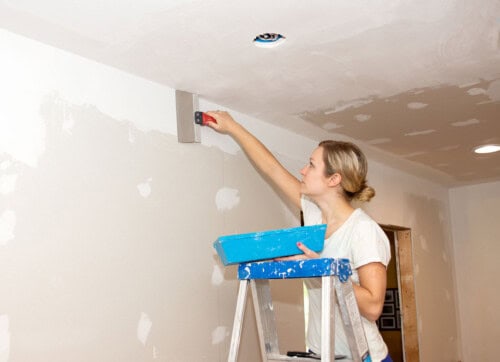ARV in real estate stands for After Repair Value. Understanding ARV is crucial for anyone interested in flipping properties, as it helps real estate investors determine the potential profit they can expect from a property after renovations. Here’s how to calculate ARV, why it’s important, and tips for using it effectively.
Key Takeaways
- Understanding ARV (After-Repair Value) is essential for real estate investors. It helps assess a property’s potential value after renovations, which is crucial for making informed investment decisions.
- ARV is important for determining profitability because it helps investors decide whether a property is worth buying, evaluate the risk for lenders, and calculate the potential profit after repairs and costs.
- Investors use ARV to set the maximum price they should pay for a property, often following the “70% rule” to ensure enough margin for profit and unexpected expenses.
- Accurately calculating ARV involves researching current property values, estimating renovation costs, and performing a comparative market analysis (CMA), all of which are key to minimizing risks and maximizing profits in real estate investments.
What is ARV (After Repair Value)?
ARV refers to the estimated value of a property after all repairs and renovations have been made. It’s a critical metric for real estate investors, especially those involved in house flipping, wholesaling, or buying distressed properties. ARV helps investors assess the potential value of a property once it’s restored to a marketable condition.
In simple terms, ARV answers the question: What will this property be worth after I fix it up?
Why is ARV Important?
ARV is important because it helps real estate investors make informed decisions about a project’s profitability. By knowing the ARV, an investor can determine at what price point a property is worth purchasing.
Here are three reasons why real estate investors need to pay attention to ARV:
1. Knowing the ARV will help you know whether a property is worth buying.
If the estimated profit margin based on ARV isn’t high enough, the investment might not be worthwhile.
2. Lenders often rely on ARV to evaluate the risk of offering loans.
Investors seeking financing for property renovations should focus on ARV. Certain lenders provide renovation loans or mortgages for home improvements, typically capping the loan amount at approximately 75% of the ARV.
3. ARV is a critical metric in understanding profit margin.
Investors can calculate the potential profit of a deal by factoring in purchase price, repair costs, holding costs, and the final ARV.
How to Calculate ARV in Real Estate
Calculating ARV involves some research and a bit of math, but the formula is relatively simple:
ARV = Current Property Value + Value of Renovations
Current Property Value (Before Repair Value)
The current property value is the price the property would sell in its present condition. To estimate this, you can look at similar properties (often referred to as “comps”) in the area that are in similar condition.
Value of Renovations
Figuring the value of renovations involves estimating how much it will cost to bring the property up to a standard where it can sell for top market value. This includes all renovations, repairs, and improvements, such as:
- Fixing structural issues
- Replacing the roof or windows
- Updating electrical and plumbing systems
- Cosmetic upgrades like painting, flooring, or modernizing kitchens and bathrooms
Consult with several contractors to get estimates. Remember, some repairs and renovations lead to others. For example, removing an old dishwasher might damage the kitchen floor, which would lead to additional expenses.
How to Use ARV in Real Estate Investment Decisions
Once you’ve calculated the ARV, it can be used to inform your investment strategy. Here’s how ARV helps investors at different stages:
1. ARV helps determine the maximum price you should pay for a property or the Maximum Allowable Offer.
Investors often use the following formula:
Maximum Allowable Offer = ARV × 70% – Repair Costs
The “70% rule” is a common guideline in real estate investing, suggesting that an investor should pay no more than 70% of the property’s ARV minus the estimated repair costs. This leaves room for profit and helps account for unforeseen expenses, market fluctuations, and holding costs.
2. The ARV will help you estimate your profit.
You can estimate your profit once the property is sold by comparing the ARV with your total costs (purchase price, repair costs, etc.).
For example, if you purchase a property for $100,000, spend $50,000 on repairs, and estimate an ARV of $200,000, your gross profit would be $50,000 (before accounting for closing costs, holding costs, and other fees).
3. ARV helps investors assess risk.
ARV gives investors a realistic perspective on the risks associated with an investment. If your ARV calculations are based on solid data, you’ll better understand whether a project is worth the risk.
Tips for Calculating and Using ARV Effectively
- Be conservative when estimating: It’s better to underestimate ARV and overestimate repair costs. This conservative approach ensures you won’t be caught off guard by unexpected expenses or a lower-than-expected sale price.
- Consider market trends: Market conditions can change. A rising market could mean your ARV increases over time, while a falling market may decrease it.
- Use technology: Several tools and platforms, such as real estate databases and ARV calculators, help investors calculate ARV.
ARV is an essential concept in real estate investing, especially for those looking to flip properties or invest in homes that need renovation. By understanding and accurately calculating ARV, investors can make informed decisions, minimize risks, and maximize profits.
Searching for another way to maximize profits from your real estate investments? Consider earning your real estate license. Many real estate investors get licenses to access the MLS, save on commissions, and access more deals.
You can start the real estate licensing process today with Colibri Real Estate School. Colibri offers affordable at-your-own-pace online real estate classes. You’ll be surprised how affordable earning a real estate license can be!






